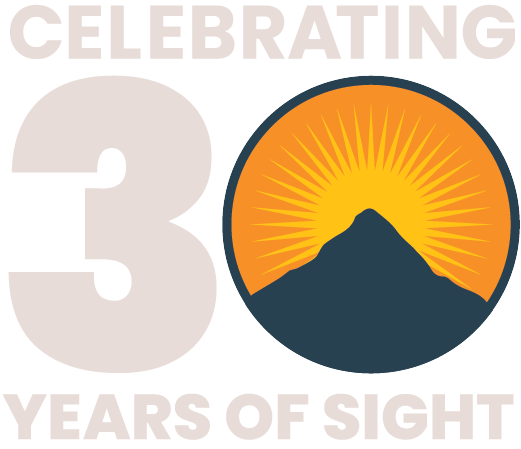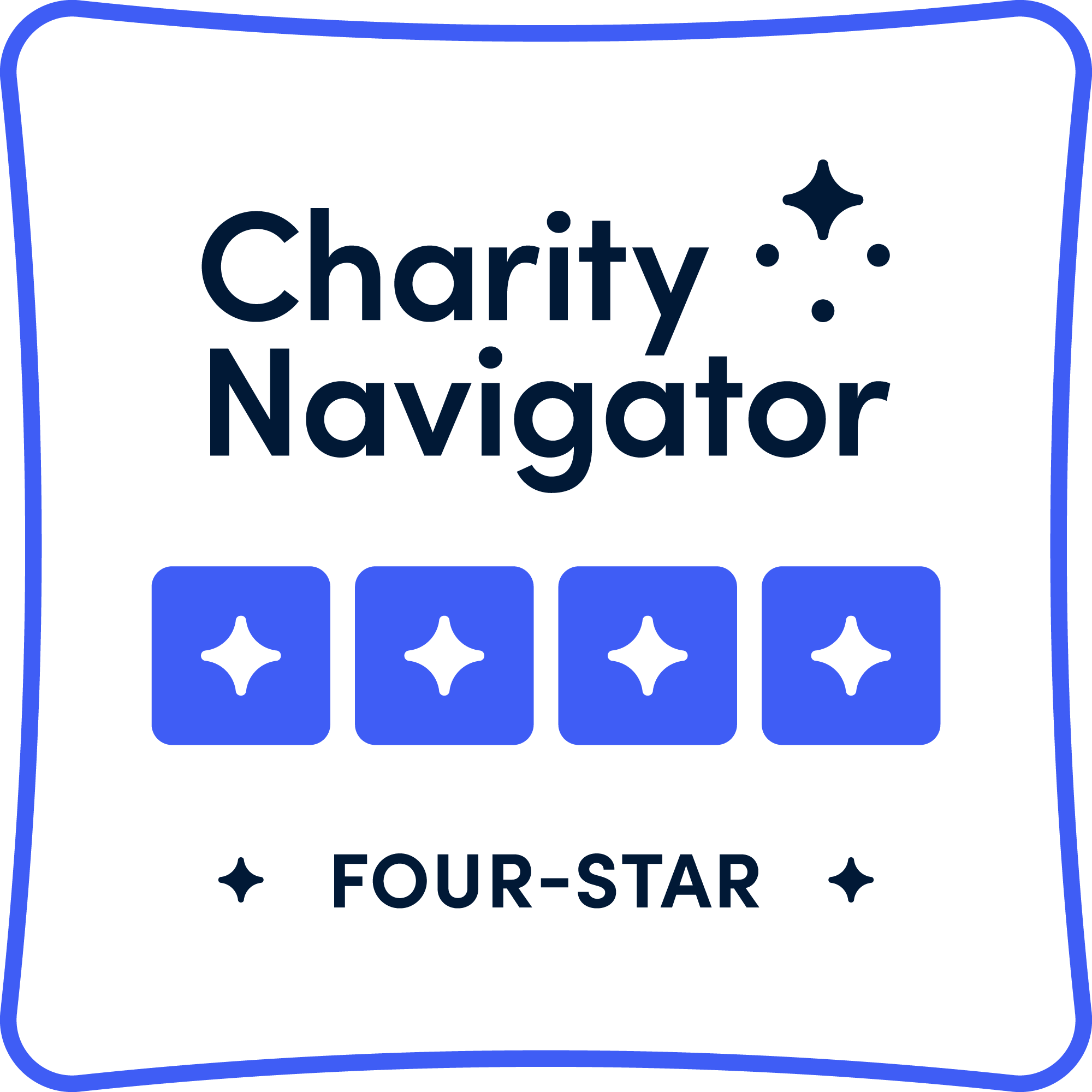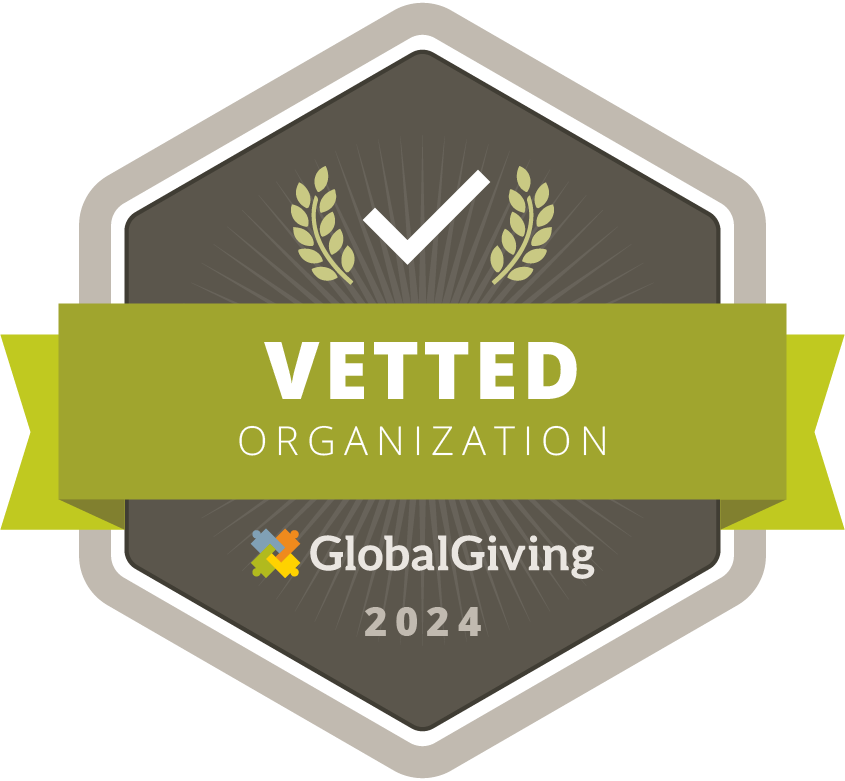Cure Blindness Project Volunteer Wins Humanitarian Award
Long-time Cure Blindness Project volunteer ophthalmologist Dr. Sam Cady receives the 2024 Alumni Humanitarian Award at Upstate Medical University (Norton College of Medicine) as part of their September alumni celebrations.
Dr. Sam Cady is a humble man. As he prepares to accept the 2024 Alumni Humanitarian Award at SUNY Upstate Medical University (Norton College of Medicine), he reflects on his time with Cure Blindness Project and the lessons the opportunity has given him.
“Perspective,” he says, pivoting from questions that give him any credit for his contributions. “I just want to know that I'm doing good work and take comfort in providing good care.”
Chairman Dr. Matt Oliva and Dr. Sam Cady attended Duke University together as undergraduates. The two reconnected while interviewing for residencies and ended up at the University of Washington (2000-2003) together where they became close friends. It was Oliva’s invitation that initially brought Cady to Ethiopia in 2012.
Cady describes that first outreach experience as “really difficult.” Outreaches presented challenges: The surgical technique used was different. The available resources were scarce. The needs of patients were great.
The experience may have left other surgeons feeling dejected. For Cady, it solidified his plan. “I needed to get better to do a better job,” he says.
He advises young ophthalmologists to understand that committing to volunteer in a surgical capacity “is a marathon not a sprint.” Doctors wanting to contribute must perfect different skills than what they may currently know. “It’s more than you might think. The skills that we have here don't translate. It’s great to do but you have to commit to it for the long term.”

When asked what he likes best about his time overseas, he immediately responds, “I like ‘the doing’ part. Helping people who have tremendous needs and the fact that Cure Blindness Project goes with no expectation of self-benefit. I always find that I come back more appreciative and grateful for the things we have here,” he says. “The training connection is satisfying as well. It’s fun to teach motivated young doctors who are wanting to serve in their home country. I enjoy that.”
“I remember one little girl in Mekelle, Ethiopia, she was maybe seven. She was bilaterally blind from cataracts and her family brought her to an outreach where the team operated on one of her eyes. The next year, we came back to the same place. I felt a tugging on my shirt. The little girl from the previous year had returned for her other eye. She remembered us,” he says. “People are appreciative and it (the work) impacts their lives.”
Global work has given Cady a different lens to view his life. “What we have here, I don’t really have too much to complain about.”
He has plans to return to Ethiopia in 2025 and is returning to Rwanda this fall. “The more you go to the same place, the more people you know and the more connected you feel to the people in that area,” he says of his multiple trips to the country with Cure Blindness Project. Cady has also traveled extensively to Rwanda to work with Cure Blindness Partner, Rwanda International Institute of Ophthalmology (RIIO) alongside Dr. John Nkurikiye and Dr. John Cropsey.
Throughout his career, Cady’s been on several surgical trips with his dad, Dr. Robert Cady, who is a pediatric orthopedist. “I’d been to Central America, East Timor, and Haiti with my dad.” Cady’s father, Dr. Robert Cady, also won the same esteemed award in 2016. At 79, he still travels to Haiti to help diagnose and treat children with clubfeet. Cady’s also been able to share the experience with his wife and daughter.

Cady had thoughts of joining the Peace Corps but understood that finding the time while pursuing a medical career was difficult. Instead, he pivoted to pursue a service-minded career that would allow him to do both: give back and pursue medicine. Cure Blindness Project is thankful for his contributions as a long-time volunteer. “I have a goal of doing a full year of service but at a week or two at a time,” he says. “Over the next twenty years, I’d like to be able to complete 1000 surgeries and train younger ophthalmologists in other countries.”
When you go to places where people are motivated to be there with a good team of people: it's a special experience. “I enjoy the time spent with those that I go with. It’s really memorable and more fun than you’d imagine.”
“I feel lucky that Matt and I reconnected and I am grateful for the genius of (Geoff) Tabin and (Sanduk) Ruit for making it happen. It really takes a special person. It’s kind of a crazy idea what they did. If you look at 20 years ago, from a crowded closet in Burlington to today: Cure Blindness Project has come a long way. I’m happy to be a part of it.”







